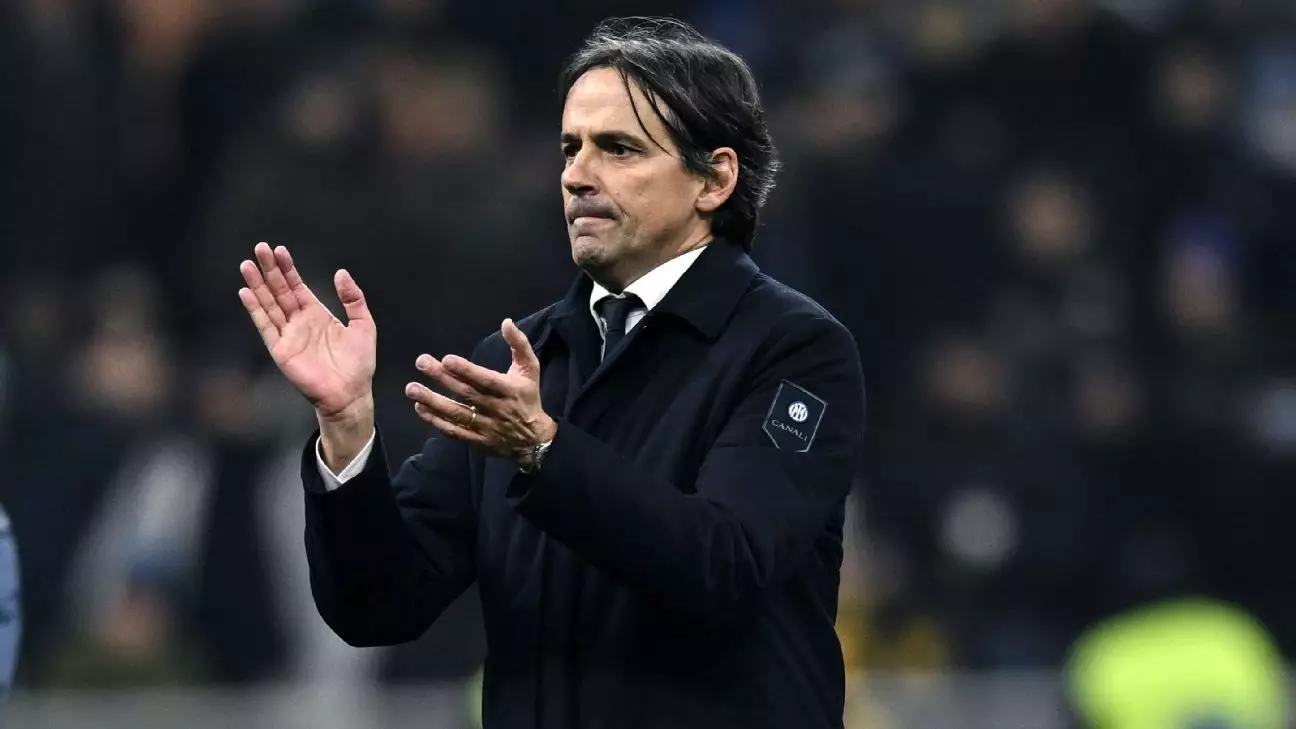Inter Milan’s recent performances have drawn a significant amount of attention, particularly their impressive comeback after facing a disappointing defeat against Fiorentina just days prior. The team’s ability to recover and deliver a compelling 2-1 victory in the rematch illustrates not only their skill on the field but also a deeper cognitive and psychological durability under pressure. Manager Simone Inzaghi’s leadership and the players’ mental fortitude were paramount in this turning point, suggesting that success in football is not just about technical ability, but also about the mentality required to bounce back from setbacks.
The match against Fiorentina served as a critical benchmark for Inter Milan. Coming off a 3-0 loss that left the players and management questioning their capabilities, the urgency to perform in front of home fans was palpable. Inzaghi noted how the players demonstrated a commendable level of maturity, which was crucial in regaining their confidence. This shift can be attributed to the team’s ability to reflect and learn from their mistakes rather than succumb to the weight of criticism. Inzaghi’s comments highlight an important aspect of sports psychology: the necessity of a mental reset after failures.
By allowing players a brief escape with their families instead of a rigid retreat, Inzaghi fostered a more relaxed environment conducive to recovery. This mental recalibration seems to have paid off, as the players showed resilience and focus that were evidently missing in their previous outing. Teams often overlook the importance of mental well-being in sports, but Inter’s recent turnaround demonstrates its paramount importance.
Inter’s tactical approach also evolved significantly in the rematch against Fiorentina. Inzaghi’s emphasis on patience and quick ball movement was evident, as the team transitioned fluidly between defense and attack. They improved their performance in winning second balls and maintained a balanced field presence that had been lacking in the previous encounter. This change highlights the adaptability required to succeed at high levels, as effective teams must not only learn from previous mistakes but also implement new strategies in real-time to outmaneuver opponents.
Moreover, Inzaghi’s remark about facing Fiorentina with the same mindset as before suggests a strategic focus that extends beyond immediate results. It reflects the depth of a manager’s vision and the importance of instilling a cohesive mindset within the squad. The capability to maintain a steady approach, even against a rival that had previously outplayed them, underscores a growing belief within the team.
On the flip side, the frustration voiced by Fiorentina’s manager, Raffaele Palladino, sheds light on the bitter intricacies of football that often escape the narrative. His concerns over the officiating, particularly regarding the contentious first goal by Inter, emphasize how tightly contested matches often boil down to pivotal moments that can sway outcomes. The perceived failure of officials to adequately utilize available technology to rectify a clear oversight ignites discussions around the efficacy and reliability of assistance systems in modern football.
While Palladino maintained his stance of not criticizing referees, his frustration points to a broader conversation about fairness and consistency in officiating. Coaches not only strategize for their teams but often navigate a chess game against external pressures, including judgment calls made during matches.
The victory against Fiorentina was undoubtedly important for Inter, placing them just one point behind league leaders Napoli. Inzaghi’s emphasis on continuing the journey in both the Champions League and domestic league showcases the ambition lingering within the team’s ranks. Their determination to march forward, regardless of the performance of rival clubs, suggests a broader desire for sustained excellence rather than a mere reaction to incremental victories.
The understanding that other teams are equally capable of performing at high levels reinforces the competitive spirit that is essential for any champion. Success does not merely rest on winning one match but rather on the cumulative process of growth, resilience, and unity within the squad.
Inter Milan’s recent victory serves not only as a numerical scoreline but as a narrative of resilience, adaptability, and a sharper focus on growth. Ultimately, they are learning that the essence of football goes beyond the pitch; it’s about fostering a mindset that embraces challenges, learns from adversity, and strives for continuous improvement.


Leave a Reply